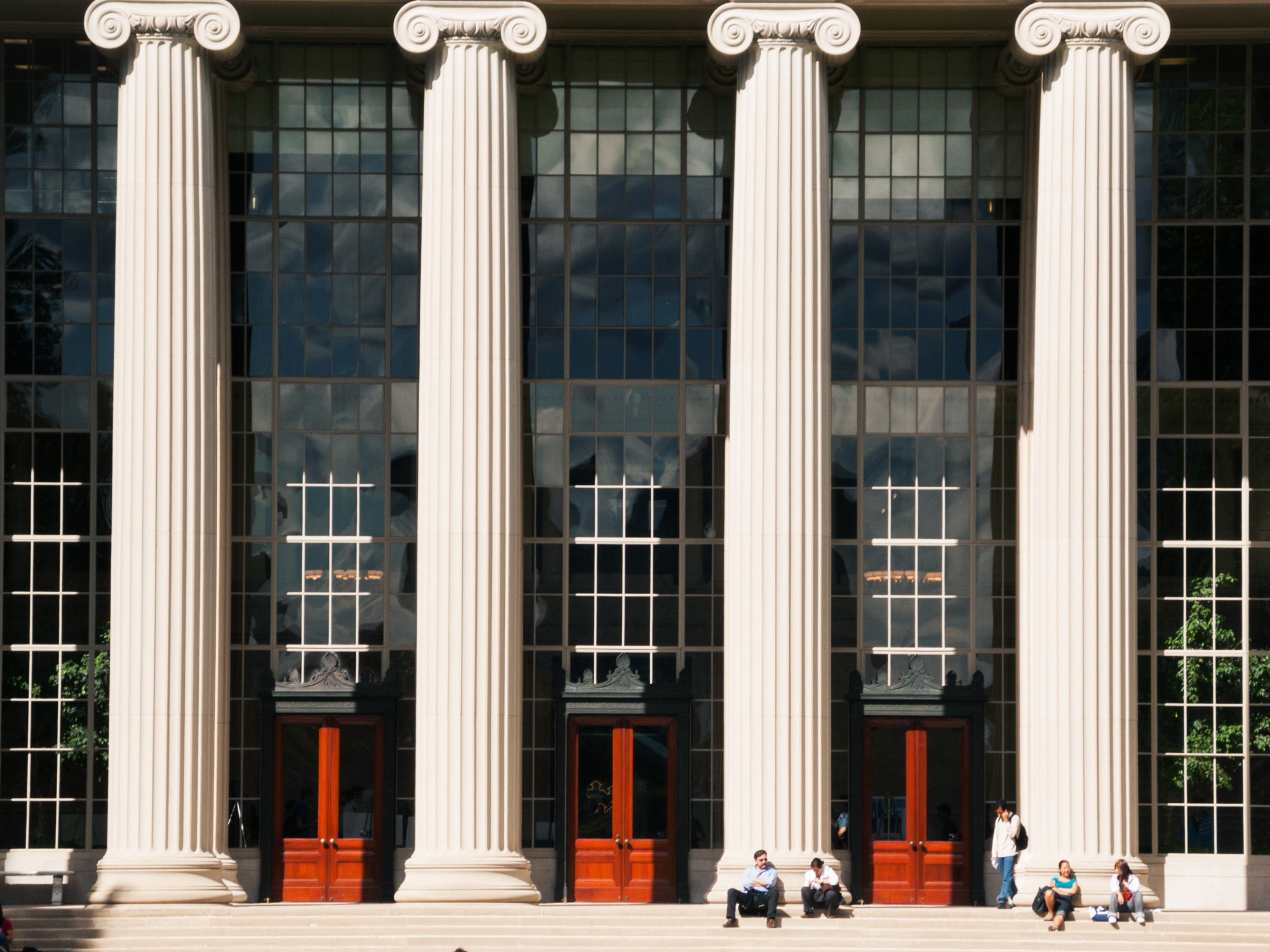Late Thursday, while a Democratic presidential debate was absorbing most of the available attentional oxygen, Harvard president Lawrence Bacow released a letter acknowledging the $6.5 million Epstein gave to Harvard to start the Program for Evolutionary Dynamics, as well as a fellowship Epstein had at Harvard and $2.4 million in “other gifts” given before Epstein’s conviction. The university will donate the $186,000 remaining of those funds to groups that help human trafficking and sexual assault victims. The rest of the money, Bacow wrote, has been spent. “Epstein’s behavior, not just at Harvard, but elsewhere, raises significant questions about how institutions like ours review and vet potential donors,” Bacow wrote. As apologies go, it was a little mea culpa, but also a little sua culpa.
Depending on how you feel about billionaire plutocrats, their money is always tainted. The Media Lab’s building is just a few minutes’ walk from the Koch Institute for Integrative Cancer Research and the Koch Biology Building, named—as MIT science writing professor Seth Mnookin pointed out in Stat earlier this week—for the recently deceased David Koch. With his brother Christopher, Koch funded the political denial of climate change. Immoral? Sure. Like Thanos-scale immoral. But it’s not illegal. Koch was an MIT alumnus and, by some accounts, a smart and decent guy, if you can put aside the planet destruction and the LGBTQ rights obstruction. Which, don’t.
Sticking to sticking it to MIT, what about the $350 million donation that put Stephen Schwarzman’s name on a college of computing there? Schwarzman, head of a private equity firm called the Blackstone Group, gave $150 million to Yale in 2015, but faced opposition at MIT because of his association with President Trump and Blackstone’s ties to Saudi royal family, especially after they were involved with the murder of the journalist Jamal Khashoggi. Nothing illegal about any of that, right?
The minefields don’t end at the banks of the Charles River, either. If you’re a museum-goer, you’ve probably walked through a Sackler wing or two; this year the Sackler family came under (deserved) fire for their role in the epidemic of opioid addiction, fostered in part by their company, Purdue Pharma. London’s Tate museum and National Portrait Gallery both said they’d stop taking Sackler money, and then, under pressure, so did the Guggenheim in New York City. Nice, except the Guggenheim family made its money with environmentally vile lead and copper mines in the early 20th century, and then shifted to Chilean nitrate mines for fertilizer and explosives. Enjoy the museum!
Or take the Michael Milken Foundation. Milken helped invent junk bonds and leveraged buyouts in the 1980s, went to prison for almost two years for securities and tax fraud, and is now mostly known for charitable giving to help cure cancer. “It’s almost a point of pride today to have a grant from the Milken Foundation,” says Gene Tempel, founding dean emeritus of the Lilly Family School of Philanthropy at IUPUI. “And yeah, he was convicted. Very clear.” (Er … that school would be funded by money the Lilly family made through the Eli Lilly pharmaceutical firm, inventor of the antidepressant drug Prozac.)
American history is shot through with these kind of stories. This country wouldn’t have Carnegie libraries, the Howard Hughes Medical Institute, the Ford Foundation, or the Rockefeller Foundation if very rich men didn’t want to burnish their legacies, which is what people used to call reputation laundering. At least one of those guys was a vicious anti-Semite and another one was a sex predator. Yet today getting a Ford Foundation or HHMI grant is a sign that your work is a high-value contribution to American arts and letters.
Donations that come from sources with potential legal or ethical issues are called, in the language of this world, “tainted.” Different places have different rules for handling such funds, both among and within institutions. Turning down money from someone with legal issues, that’s easy—or at least it’s supposed to be, Jeffrey Epstein notwithstanding. And gifts with explicit quos attached to the quid? Those are easy to say no to, too. “Most institutions will have policies to make certain that research is not tainted by outside influence. There’s a pretty high standard in academic research so that findings are trustworthy,” Tempel says. But that’s not even the biggest problem: “If you’re taking money and associate the institution with someone whose value system might not be in alignment with the values of the institution, then its an assault on institutional integrity.”





